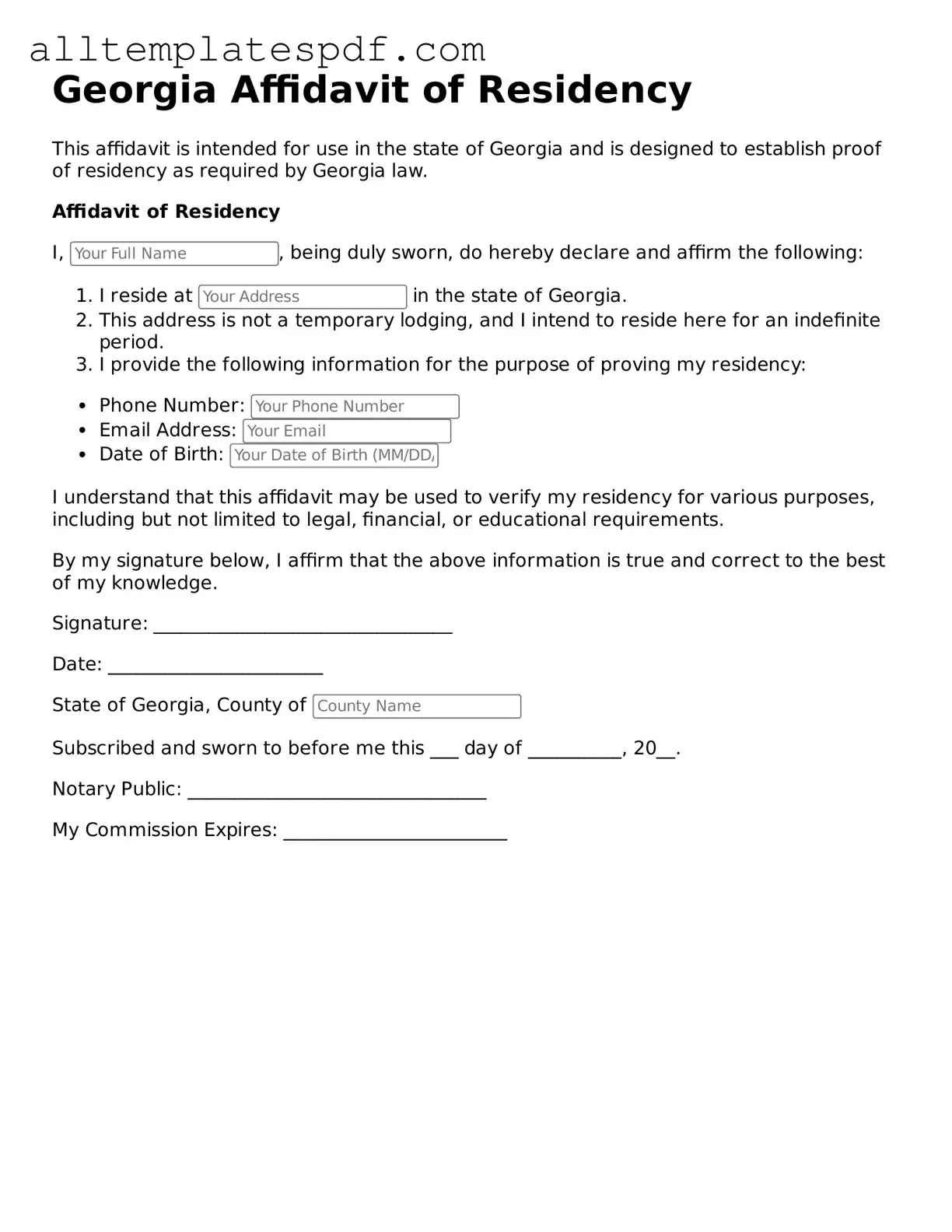Filling out the Georgia Affidavit of Residency form can be a straightforward process, but many people make common mistakes that can lead to delays or complications. One frequent error is not providing a complete address. It’s essential to include the full address, including the street number, street name, city, state, and zip code. Omitting any part of this information can result in the form being rejected.
Another common mistake is failing to sign and date the affidavit. This form is not just a statement; it is a legal document. Without your signature, the affidavit lacks validity. Make sure to review the document before submission to confirm that you have signed and dated it appropriately.
People often forget to use the correct version of the form. Georgia may update its forms periodically, and using an outdated version can lead to issues. Always check for the most recent version of the Affidavit of Residency to ensure compliance with current requirements.
Inaccurate personal information is another pitfall. When filling out the form, individuals must ensure that their names, dates of birth, and other personal details are correct. Even a small typo can cause significant problems down the line, especially when it comes to verifying residency.
Many individuals do not provide adequate proof of residency. The affidavit typically requires supporting documents, such as utility bills or lease agreements. Failing to include these documents can lead to a denial of the residency claim. Always check the requirements and include the necessary evidence.
Some people neglect to read the instructions thoroughly. Each section of the form has specific requirements, and overlooking these can result in incomplete submissions. Taking the time to read through the instructions can save you from having to redo the form later.
Another frequent mistake is not keeping a copy of the submitted affidavit. It’s wise to retain a copy for your records. This can be helpful if any questions arise in the future regarding your residency status.
People sometimes submit the affidavit without checking for consistency with other documents. If your affidavit states one address but your driver's license or other official documents show a different address, this inconsistency can raise red flags. Always ensure that all documents align.
Lastly, procrastination can be a significant barrier. Delaying the completion of the affidavit can lead to rushed submissions, increasing the likelihood of errors. Planning ahead and allowing ample time for review can help ensure that everything is completed correctly.

